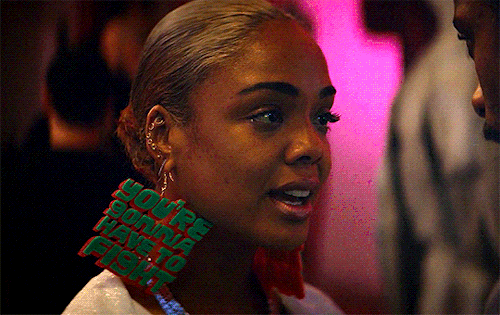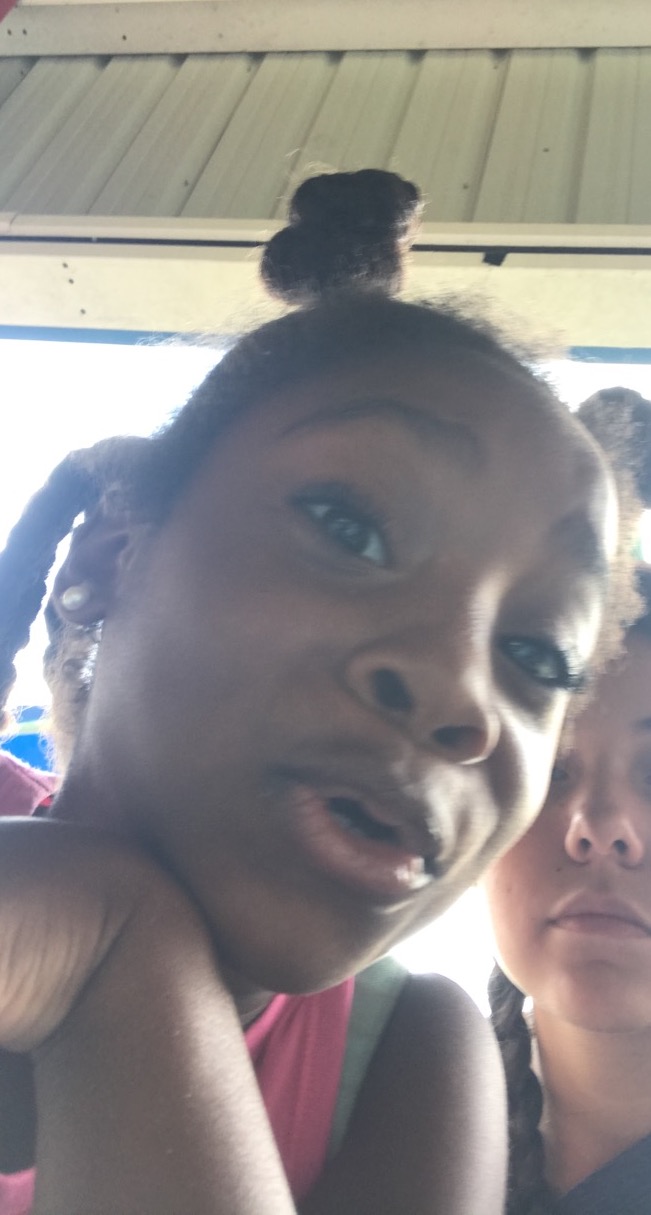BAPs centers the African American culture, specifically that of women. This lens is not super common now, let alone in 1997 when this film came out. Being a girl, I was able to relate to the characters, inspired by Nisi’s ambition and drive to just be herself. However, due to my identity, I don’t feel as big of a force to codeswitch as Nisi had. For example, upon their arrival to Beverly Hills, she pulled out her “etiquette booklet” and prepared Mickey by saying “if they ask ‘how are you?’ smile sweetly, ‘we’re very well thank you, and yourself?’” This film accurately put the theory of codeswitching into practice just as Boots Riley also did in Sorry to Bother You.
The two main characters are flamboyant, free and independent, not caring about the world or how they are perceived. They are themselves in a society that wants them to fit a different standard. In the time period, women were surfacing as pop artists such as Lil’ Kim were redefining fashion with the concept of Camp. Scarlett Newman wrote in her Teen Vogue article about Camp that Lil’ Kim’s clothes were “rooted in exploring overt sex appeal and opulence through over-the-top fashion.” Nisi and Mickey join her in this art of self-expression and “outrageous aestheticism”(Susan Sontag) that is Camp. This film disrupts the patriarchy stereotype that women can’t go off and chase their dreams and earn money for themselves. It also disrupts the norm society kind of portrays that white people are only to associate with white people and the same with each socio-economic class as Mickey and Nisi become close friends with a rich, white male.
The beginning of the film shows socio-economic discrepancies. On one hand there is Mr. Blakemore living lavishly in Beverly Hills while there are Nisi and Mickey in Georgia full of ambition but living pay check to pay check. The film maker emphasizes fashion and self-expression as an opportunity for them to express themselves which brought them joy.
Overall, I praise the filmmaker in this piece as it was probably thought of as progressive for it’s time. Nisi taught me to chase my dreams, that no man needs to tell me what I can / can’t do and to be proud of who I am.


 that everyone makes do with their circumstances and finds way to uniquely express themselves. However, the stereotype of lack of imagination is reinforced with the introduction of public housing such as the projects, that of which all present uniformity and suppresses the opportunity for creativity.
that everyone makes do with their circumstances and finds way to uniquely express themselves. However, the stereotype of lack of imagination is reinforced with the introduction of public housing such as the projects, that of which all present uniformity and suppresses the opportunity for creativity.
